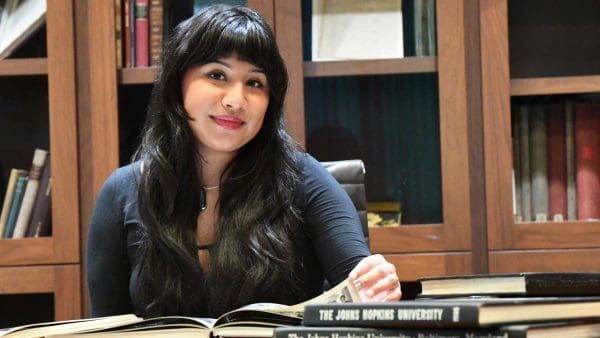
Anthony Boutros
Until last year, rapists in Lebanon could be exonerated if they married their victims. A number of women’s rights groups successfully fought for the repeal of controversial government penal code 522, which allowed rapists to escape justice by marrying their victims.
It was “definitely a win,” says Lebanese-American student Anthony Boutros, but he cautions that because of the complexity of the penal code (statutes similar to 522 remain on the books), and the dominating role of religious doctrines in the nation, the repeal is viewed by some activists as only a “partial success.”
“Religious bodies have the power over what we call ‘personal status laws’ in Lebanon,” says the junior sociology, international studies, and public health major. “So, everything from birth to marriage to divorce and death—anything that relates to your personal life—is governed by religious courts and religious bodies, and the government does not exercise its constitutional power to provide civil alternatives.”
Boutros refers to Lebanon as a “weak state,” and with research funding from three different Hopkins grants—the Aronson International Experience Grant; the Undergraduate Islamic Studies Research Grant; and the Program for the Study of Women, Gender, and Sexuality Summer Grant—he visited the country last summer to interview leaders of more than a dozen gender justice groups about how they operate in this political environment.
As he began field work, Boutros says he was struck by “the innovative and diverse strategies that civil society organizations are employing to make a push for progress.” He began cataloging these approaches and the structures they are trying to overcome. One activist Boutros interviewed spent two years creating a civil society political party to compete against sectarian parties in elections. Another activist was working to increase gender justice within the sectarian parties. In addition, an academic activist was working through a business school to create sexual harassment laws and rules, not within the government, but in the bylaws for corporations.
“That way, employees who experience sexual harassment can sue their company, based not on the law of the land, but the laws of the company,” Boutros says. “There really is an incredible range of strategies at work. Lebanon’s imposing structures can make it seem hopeless to accomplish any kind of change, but civil society organizations are trying to make a dent.”




